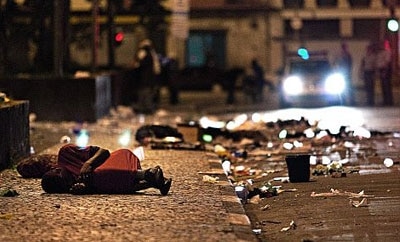Rio de Janeiro initiated a campaign on February 19 to forcibly hospitalize crack users, part of a wider national effort to combat rising use of the cheap and prevalent drug.
The operations have been concentrated in areas of the city nicknamed “cracolandias,” or crack lands, where users of the drug congregate. Early Friday morning saw 116 users, including 12 adolescents, rounded up and taken to treatment centers, according to O Globo. This follows a raid on Tuesday which saw 91 people rounded up, although not all of them were hospitalized.
The Rio de Janeiro raids are similiar to a campaign in São Paulo, a city that also suffers from high levels of crack addiction, and which began to forcibly commit addicts earlier this year.
The operation has caused some controversy in Rio de Janeiro, with one psychologist calling it “absurd,” while the city ombudsman’s office has also issued complaints. Another problem facing the city is where to house the addicts. Those detained on Tuesday were brought to mental health institutions because the rehabilitation centers, or “therapeutic communities” as they will be called, are not yet ready.
InSight Crime Analysis
With the raids, Brazil is taking a relatively novel approach to drug addiction, treating it as a health problem rather than a criminal issue. That being said, the campaign is likely to continue to cause debate over whether the mandatory hospitalization of crack addicts will indeed result in a higher number of people successfully treated.
Crack addiction has become a widespread problem in Brazil, with the government committing $2 billion to stem rising addiction rates. The drug has become more widely available as drug trafficking organizations in the region have become increasingly reliant on Brazilian consumers of cocaine and its by-products in order to turn a profit.
As InSight Crime has previously reported, police have theorized that criminal group the First Capital Command (PCC) played an instrumental role in building up the crack market in São Paulo, and then Rio de Janerio. Some 90 percent of the crack in Rio de Janeiro is thought to have been supplied by São Paulo-based groups, anti-narcotics officials have said.

